3 June 2023 Current Affairs – The Day’s Top News | GKSERIES

Current Affairs is the most important area in all competitive exams. But the difficulty level is very high. That’s why; many aspirants get confused, how to select Current Affairs for Preparation of Competitive Examination? In this Post, Daily Current Affairs 3 June 2023, we have tried to cover each and every point and also included all important facts from National/ International news that are useful for upcoming competitive examinations such as UPSC, SSC, Railway, State Govt. etc.
So, here is the Top News of the Day for 3 June 2023 to help you prepare the Latest Current Affairs part. After reading this section, you can successfully attempt Current Affairs Quiz.
Current Affairs for Competitive Exam – 3 June 2023
World Bicycle Day 2023: Date, Theme, Significance And History
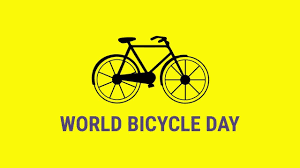
World Bicycle Day 2023
On June 3rd, the world celebrates World Bicycle Day. The United Nations General Assembly established it in 2018 to recognise the bicycle as a simple, economical, dependable, clean, and ecologically friendly sustainable mode of transportation. The selection of this date is significant as it commemorates the anniversary of the invention of the bicycle by Karl von Drais in 1817. The United Nations General Assembly officially designated this day in April 2018 to honor the bicycle’s exceptional qualities, durability, and versatility, considering it has been utilized as a practical mode of transport for over two centuries. The bicycle was recognised by the United Nations as a simple, cost-effective, dependable, eco-friendly, and sustainable mode of transportation.
World Bicycle Day: Theme
The theme for this year’s World Bicycle Day is “Riding Together for a Sustainable Future.”
Here are some of the key significance of World Bicycle Day:
- To raise awareness of the benefits of cycling. Cycling is a healthy, sustainable and affordable form of transportation. It can aid in the improvement of physical fitness, the reduction of air pollution and transportation congestion, and the promotion of social inclusion.
- To advocate for better infrastructure for cyclists. Many cities and towns are not designed with cyclists in mind. This can make it dangerous and difficult to ride a bike. World Bicycle Day is a chance to call for better bike lanes, paths and other infrastructure that make it safer and easier to get around by bike.
- To promote cycling as a way to achieve the Sustainable Development Goals. The Sustainable Development Goals are a set of 17 goals adopted by the United Nations in 2015. Cycling can help to achieve several of these aims, including poverty reduction, improved health, and sustainable development.
World Bicycle Day- History
World Bicycle Day was first observed on June 3, 2018, when the United Nations General Assembly adopted a resolution during its 72nd Regular Session in New York City in April. The declaration was adopted by more than 193 member states that encouraged them to include bicycles in regional, international, and subnational development programmes and policies.
Acknowledging the uniqueness, longevity and versatility of the bicycle, which has been in use for two centuries, and that it is a simple, affordable, reliable, clean and environmentally fit sustainable means of transportation, fostering environmental stewardship and health, the General Assembly decided to declare 3 June World Bicycle Day.
PM-Kisan Scheme: Empowering Indian Farmers for a Resilient Agriculture Sector
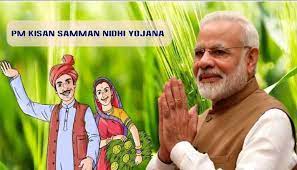
Why the Scheme is in News?
At Pathikonda in Kurnool district, YS Jagan Mohan Reddy, the Chief Minister of Andhra Pradesh, provided financial aid to farmers for the fifth consecutive year through the YSR Rythu Bharosa-PM Kisan program. CM Jagan gave Rs 3,923.21 crore to 52,30,939 farmers in this year’s first installment.
As a result, the YSRCP state government deposited Rs 5,500 straight into each farmer’s bank account, plus an additional Rs 2,000 from the Centre as part of the PM Kisan Yojana.
Introduction
In a country where agriculture plays a crucial role in the economy and the livelihoods of millions, ensuring the welfare of farmers becomes paramount. In 2019, the Government of India launched the Pradhan Mantri Kisan Samman Nidhi (PM-Kisan) scheme, a transformative initiative aimed at providing direct income support to small and marginal farmers across the nation. With its ambitious goals and broad reach, the PM-Kisan scheme has emerged as a vital engine of agricultural growth and rural development.
About Pradhan Mantri Kisan Samman Nidhi (PM-Kisan) scheme
The PM-Kisan scheme, also known as Pradhan Mantri Kisan Samman Nidhi Yojana, is an initiative of the Government of India launched in February 2019. The scheme’s goal is to give economic support to the country’s small and marginal farmers. The scheme is managed by the Department of Agriculture, Cooperation, and Farmers Welfare, which is part of the Ministry of Agriculture and Farmers Welfare of the Government of India.
Objective and Features of PM-Kisan Scheme
- The primary objective of the PM-Kisan scheme is to augment the income of small and marginal farmers by providing them with direct financial assistance.
- The scheme aims to pay qualifying farmers with Rs. 6,000 per year in three equal installments put straight into their bank accounts.
- The funds provided under the scheme can be utilized by farmers to meet their agricultural and household expenses, purchase seeds, fertilizers, and other necessary inputs, and invest in improving farm productivity.
- The PM-Kisan scheme covers all farmers, irrespective of their landholding size, across the entire country.
- Unlike previous schemes, it does not differentiate between irrigated and non-irrigated land, ensuring equal benefits for all farmers.
- The scheme also recognises women’s important role in agriculture and extends its advantages to women farmers, including widows and divorcees.
- Additionally, the scheme employs technology-driven mechanisms to ensure transparency and efficiency, using the Aadhaar identification system to authenticate beneficiaries and prevent leakages.
PM-Kisan Scheme: Impact and Benefits
Since its inception, the PM-Kisan scheme has made significant strides in transforming the lives of farmers and enhancing their economic well-being. Here are some key benefits and impacts of the scheme:
1. Income Support: Farmers benefit from direct income support of Rs. 6,000 per year, which helps them pay their immediate needs and reduces their reliance on informal lending sources.
2. Poverty Alleviation: By ensuring a stable income for farmers, the scheme contributes to poverty reduction, especially in rural areas where agriculture is the primary source of livelihood.
3. Boosting Agricultural Investment: The financial assistance provided through the PM-Kisan scheme enables farmers to make necessary investments in their farms, including purchasing modern equipment, adopting advanced farming techniques, and diversifying their crops.
4. Enhancing Agricultural Productivity: With improved access to financial resources, farmers can invest in high-quality seeds, fertilizers, and irrigation facilities, leading to increased agricultural productivity and overall crop yield.
5. Empowering Women Farmers: The inclusion of women farmers in the PM-Kisan scheme recognizes their valuable contribution to the agricultural sector and ensures their economic empowerment.
6. Social Security for Farmers: The scheme offers a sense of social security to farmers by providing them with a stable income, reducing their vulnerability to market fluctuations and natural disasters.
7. Rural Development: The PM-Kisan plan is critical in fostering rural development since it directs monies into the rural economy, stimulates local enterprises, and creates opportunities for employment.
PM-Kisan Scheme: Challenges and the Way Forward
While the PM-Kisan scheme has been successful in improving the lives of many farmers, there are certain challenges that need to be addressed to maximize its impact:
1. Identification and Inclusion: Ensuring that all eligible farmers are identified and included in the scheme remains a challenge. Efforts should be made to streamline the beneficiary identification process and address any issues related to coverage gaps.
2. Awareness and Outreach: Increasing awareness about the scheme and its benefits among farmers, especially those in remote areas, is crucial. Effective communication strategies and grassroots-level outreach programs can help bridge the awareness gap.
3. Strengthening Last-Mile Delivery: TimTimely and efficient disbursal of funds to farmers is essential to maximize the impact of the PM-Kisan scheme. Efforts should be made to improve the delivery mechanisms, including robust banking infrastructure in rural areas, effective coordination between various stakeholders, and leveraging technology to expedite the transfer of funds.
4. Strengthening Last-Mile Delivery: Timely and efficient delivery of the financial assistance to farmers is essential. The government should continue to invest in strengthening the infrastructure and systems required for seamless fund transfer, ensuring that farmers receive their installments without any delays.
5. Agricultural Reforms: While the PM-Kisan scheme provides much-needed income support, complementary agricultural reforms are necessary to address the structural challenges faced by farmers. Initiatives to improve access to credit, enhance market linkages, promote agri-infrastructure development, and encourage agricultural diversification will further amplify the impact of the scheme.
6. Monitoring and Evaluation: Regular monitoring and evaluation of the scheme’s implementation are vital to assess its effectiveness and identify areas for improvement. The government should continue to gather feedback from farmers and stakeholders and make necessary adjustments to enhance the scheme’s outcomes.
7. Climate Resilience: Climate change poses significant challenges to Indian agriculture. It is imperative to incorporate climate-resilient practices and technologies into the PM-Kisan scheme. Promoting sustainable farming methods, water conservation, and providing support for climate-smart agriculture can help farmers adapt to changing climatic conditions and mitigate risks.
PM-Kisan Scheme: Vision
The PM-Kisan scheme has transformed India’s agricultural environment, providing direct income support to millions of farmers across the country. By augmenting their income and enhancing their financial stability, the scheme contributes to poverty alleviation, rural development, and agricultural growth. However, in order to maximise its impact, ongoing efforts to overcome difficulties relating to identification, outreach, delivery, and agricultural changes are required. By ensuring the welfare of farmers and empowering them with the necessary resources, the PM-Kisan scheme paves the way for a resilient and prosperous agricultural sector in India.
India Defeat Pakistan To Become Hockey Junior Asia Cup Champions

Hockey Junior Asia Cup Champions 2023
The Indian junior men’s hockey team maintained their continental dominance by defeating archrival Pakistan 2-1 to win the Asia Cup in Salalah, Oman. Angad Bir Singh struck in the 13th minute and Araijeet Singh Hundal in the 20th for India, while Pakistan managed to pull one back with Abdul Basharat scoring in the 37th minute. This was India’s fourth victory, having previously been declared champions in 2004, 2008, and 2015. In the meanwhile, Pakistan has won the event three times: in 1987, 1992, and 1996.
Araijeet Singh Hundal, India’s top-scorer at Men’s Junior Asia Cup hockey 2023 with eight goals, doubled the lead five minutes into the second quarter. Previously, India and Pakistan remained undefeated in the group stage after a 1-1 draw in the India vs Pakistan hockey match. India, however, managed to top the group as they had a better goal difference over second-placed Pakistan.
In the semi-finals, India trounced the Republic of Korea 9-1 while Pakistan defeated Malaysia 6-2. The Men’s Junior Asia Cup hockey tournament in Oman was held after eight years. The 2021 edition was cancelled due to COVID-19.
Microsoft Joins Indian Govt To Train 6k Students, 200 Educators In Cybersecurity Skills

Microsoft has inked a memorandum of understanding (MoU) with the Ministry of Skills Development and Entrepreneurship’s Directorate General of Training (DGT) to teach 6,000 students and 200 instructors in digital and cyber-security skills in the country. As part of this collaboration with, Microsoft will offer a wide range of courses, including training in AI, cloud computing, web development and cybersecurity skills for students and 200 faculty members at government-led Industrial Training Institutes (ITIs) and National Skills Training Institutions (NSTIs).
The training will empower young students with industry-relevant skills, enhancing their employability, and connecting them to relevant job opportunities. In addition, trained faculty members can then train ITI students attending computer operator and programming assistant (COPA) training.
The ‘CyberShikshaa’ programme focusing on basic and intermediate cybersecurity skills training will also be expanded to students and educators at 10 NSTIs for women. Demographic shifts and technical advancements such as Industry 4.0, Web 3.0, and extended reality technology are providing enormous opportunities for our kids that will impact their life forever.
Important takeaways for all competitive exams:
- Microsoft Founders: Bill Gates, Paul Allen;
- Microsoft Headquarters: Redmond, Washington, United States;
- Microsoft Chairperson: Satya Nadella (Chairman and Chief Executive Officer).
TCS, Reliance, Jio Top Best Indian Brands 2023 Ranking
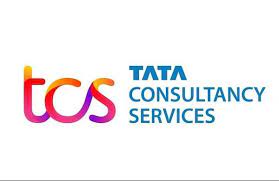
TCS, Reliance, Jio top best Indian brands 2023 ranking
Interbrand, a prominent global brand consultant, has stated that TCS, the headquartered technology behemoth, and Reliance Industries, India’s most valued firm, have topped its list of the most valuable brands in India.
With a brand value of Rs 1.09 lakh crore, TCS topped the 2023 list, followed by Reliance Industries, led by billionaire Mukesh Ambani, with a brand value of Rs 65,320 crore. Jio, Reliance Industries’ telecom and digital unit, is ranked fifth, with a brand value of Rs 49,027 crore.
TCS, Reliance, Jio top best Indian brands 2023 ranking:
The Best Indian Brands report, celebrating its tenth year, indicates a 167% increase in the value of the total list. The 2020 edition of the Interbrand India’s Top 50 Brands list highlights impressive growth, with a combined list value of Rs 8.3 lakh crore (USD 100 billion), representing a notable 167% increase over the last decade.
This marks the first time the total value of the table has surpassed the USD 100 billion mark. The top three brands, which include Tata, Reliance, and Infosys, alone account for 46% of the entire value of the top 10 brands. The top five are completed by HDFC and Jio.
What is so different about these Indian brands Ranking?
- Historically, three technology brands have secured positions in the top five for the first time.
- Examining the fastest-growing sectors over the last ten years, FMCG displays a remarkable compound annual growth rate (CAGR) of 25%, followed by home building and infrastructure at 17% and technology at 14%. Meanwhile, the technology sector has overtaken diversified industries as the leading contributor.
- The total brand value of the top ten brands, amounting to Rs 4.9 lakh crore, exceeds the combined value of the remaining 40 brands on the list, which amounts to Rs 3.3 lakh crore.
Although the financial services sector continues to boast the highest number of brands on the list with nine representatives, the home building and infrastructure sector has witnessed the most significant rise, with seven brands entering since 2014. The top ten brands scored exceptionally well in three of Interbrand’s Brand Strength Factors: Trust, Distinctiveness, and Empathy.
New Liberation War Gallery Inaugurated At Indian Cultural Centre In Dhaka
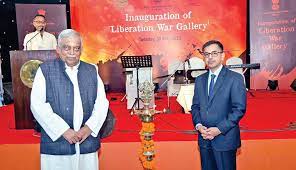
New Liberation War Gallery Inaugurated at Indian Cultural Centre in Dhaka
The 1971 Liberation War Gallery was inaugurated at the Indian Cultural Centre of the High Commission of India in Dhaka, with the Home Minister of Bangladesh Asaduzzaman Khan serving as the Chief Guest.
New Liberation War Gallery Inaugurated in Dhaka: Key Points
- The gallery comprises rare photographs and documents showcasing the heroic moments of the 1971 Liberation War of Bangladesh.
- The event was attended by a number of liberation war fighters, Bir Muktijoddhas, and distinguished guests including eminent personalities from the cultural and academic spheres of Bangladesh, media persons, and youth.
About the Gallery:
The gallery pays tribute to the valiant freedom fighters who fought against oppression and tyranny and honours the memory of the unnamed millions who lost their lives during the 1971 Liberation War of Bangladesh. It represents heroism, resilience, and the indomitable spirit of the Bangladeshi people.
High Commissioner Pranay Verma Speech:
In his speech, High Commissioner Pranay Verma highlighted the historical significance of the 1971 Liberation War for both Bangladesh and India, stressing the unwavering spirit of friendship and solidarity between the two nations. He expressed his hope that the gallery would continue to serve as a monument of India-Bangladesh friendship for future generations to seek inspiration from.
Home Minister Asaduzzaman Khan appreciated the enormous sacrifice of Indian soldiers and the extraordinary support shown by the Indian people to the 10 million refugees who flowed into the surrounding states of Tripura, West Bengal, Assam, and other Indian states during the Liberation War. The programme concluded with songs and dance performances celebrating the enduring friendship between India and Bangladesh.
Periodic Table, Evolution Removed From Class 10th

Periodic Table, Evolution removed from Class 10th
The National Council of Educational Research and Training (NCERT) caused controversy when reports surfaced claiming that it would remove chapters on democracy, political parties, Darwin’s theory, and the periodic table from their Class 10 CBSE science textbooks.
Periodic Table, Evolution removed from Class 10th: Key Points
- The backlash from scientists and the public alike has prompted the council to release a statement explaining their reasoning.
- They clarified that these topics are still incorporated in the school curriculum, with periodic table and evolution content available in Classes 11 and 12.
- NCERT went on to explain that feedback from teachers and stakeholders suggested that children only need to study certain concepts at an appropriate stage rather than different stages.
- They also stated that this decision was made, in part, due to the current COVID-19 pandemic.
- According to NCERT, elements, symbols, compounds, atoms, and molecules are studied in Class 9, while chemical reactions, acids, bases, salts, metals, nonmetals, and carbon compounds are covered in Class 10.
- Students taking Science in Class 11 and 12 will delve into the specifics of the periodic classification of elements, which has been made more age-appropriate.
- NCERT also notes that during the pandemic, they sought to streamline the contents of textbooks based on various criteria, including content overlap, difficulty level, relevance, and whether the material is self or peer-taught.
This exercise aimed to ensure that students’ learning was not disrupted by the shift to alternative learning modes. When allegations arose that NCERT was eliminating chapters and subjects, the scientific world slammed the practise and warned that if quick action is not done, India will retreat into an era of darkness.
Union Minister For Jal Shakti Launched Portal For Gobardhan
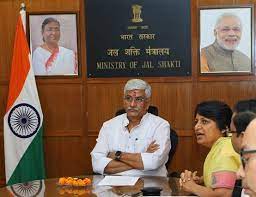
The Minister for Jal Shakti, Gajendra Singh Shekhawat has launched the Unified Registration Portal for GOBARdhan.
Aim: One-stop repository to assess investment and participation in the Biogas/CBG sector at the pan India level and streamline the process of setting up CBG/Biogas plants
GOBARdhan refers to Galvanizing Organic Bio-Agro Resources Dhan. It is an initiative of the Government of India, that aims to convert waste to wealth towards promoting a circular economy.
India’s Esow Alben Wins Bronze Medal In Bahnen-Tournee Cycling 2023

Indian cyclist Esow Alben has bagged the bronze medal in the elite men’s keirin event at a UCI Class 1 Event-Finale Bahnen-Tournee 2023 cycling competition in Germany.
He has also listed himself in being the first cyclist from India to participate in the UCI Champions League.
Alben was also the first Indian who won a medal in a cycling world championship. Apart from Alben, Indian cyclist Ronaldo Singh Laitonjam finished 10th in the men’s sprint event at Germany meet.
P Upadhyay Inas Takes Over As Director General Of Naval Armament

INAS, P Upadhyay assumed charge as Director General of Naval Armament (DGONA) on June 1, 2023, and replaced KSC lyer, who superannuated on 31 May 2023.
He is an alumnus of the Naval Defence College of NDC-53. He belongs to the 1987 batch of the Indian Naval Armament Service. He joined the Naval Armament Organization of the Indian Navy in 1989.
He is specialized in Missile and Torpedo Maintenance besides having vast knowledge of the disposal of ammunition.